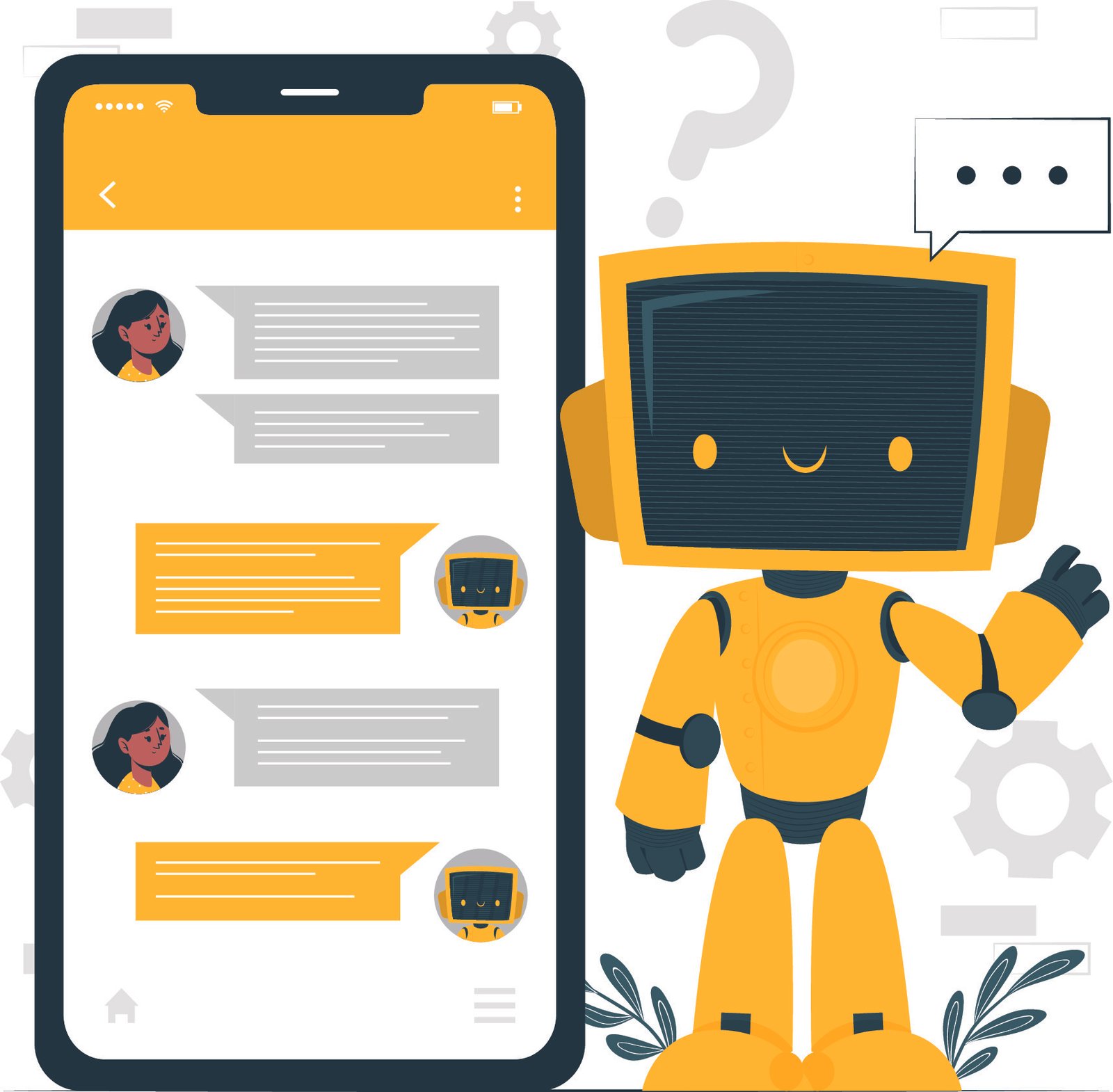In today’s fast-paced business environment, B2B companies are continually looking for ways to engage their customers and enhance the overall customer experience. As businesses move towards digital transformation, chatbots have emerged as a powerful tool for improving customer interactions and automating various processes. When used effectively, chatbots can streamline customer service, provide instant support, and create personalized experiences for clients, all while reducing operational costs. In this blog post, we will explore how B2B companies can leverage chatbots to enhance customer engagement and improve their data-driven marketing strategies.
What Are Chatbots in B2B?
Chatbots are AI-driven software solutions that enable businesses to engage in automated, real-time conversations with users. In the B2B context, chatbots are deployed on websites, within apps, or through messaging platforms to assist with various business functions such as customer support, lead generation, and sales. They can answer queries, book appointments, provide product recommendations, and even handle common tasks like order processing.
By utilizing natural language processing (NLP) and machine learning, chatbots are capable of understanding user inputs, providing relevant information, and adapting to the customer’s needs over time. With these capabilities, chatbots are transforming how B2B companies engage with their clients, providing a faster, more efficient way to deliver valuable services.
The Role of Chatbots in B2B Customer Engagement
Chatbots play a significant role in improving customer engagement by offering real-time, personalized interactions that enhance the customer experience. For B2B companies, this technology enables businesses to scale their customer service operations and ensure that clients receive timely responses and relevant information when they need it.
1. Instant Customer Support
One of the primary advantages of using chatbots in B2B is their ability to provide instant support to customers. With chatbots available 24/7, businesses can ensure that customers have access to answers at any time, even outside of regular business hours. This is especially important for global B2B companies that deal with clients in different time zones.
Chatbots can handle routine inquiries, such as checking the status of orders, providing product details, or troubleshooting common issues. By automating these tasks, B2B companies free up human agents to focus on more complex queries that require a personal touch. This leads to higher customer satisfaction and allows businesses to operate more efficiently.
2. Lead Generation and Qualification
Another way chatbots can enhance B2B customer engagement is by automating lead generation and qualification. When a potential client visits your website or interacts with your business online, a chatbot can initiate the conversation and ask qualifying questions to determine the lead’s level of interest.
For example, a chatbot can ask questions about the customer’s business size, industry, and specific needs. Based on their responses, the chatbot can either nurture the lead by offering more information or pass them on to the sales team if they meet specific criteria. This automation not only saves time but also ensures that sales teams focus their efforts on leads that are more likely to convert.
3. Personalized Customer Experience
Data-driven marketing has become a crucial strategy for B2B businesses, and chatbots play a key role in delivering personalized customer experiences. By integrating with CRM systems and analyzing customer interactions, chatbots can deliver personalized messages based on previous interactions, purchasing history, and even real-time behavior.
For instance, if a customer is looking at a specific product or service, the chatbot can provide relevant information, offer discounts, or suggest related products that may be of interest. This level of personalization helps build trust and rapport with customers, ultimately increasing the chances of conversion.
4. Enhanced Lead Nurturing
In B2B, nurturing leads over a long sales cycle is essential. Chatbots help businesses stay engaged with potential clients by sending automated follow-up messages and reminders based on the lead’s activity. For example, if a lead downloads a whitepaper or attends a webinar, the chatbot can follow up with additional resources or schedule a call with a sales representative.
By maintaining consistent and relevant communication, chatbots keep leads warm and engaged, which increases the likelihood of conversion when the time is right. This also ensures that leads don’t fall through the cracks due to lack of follow-up or human error.

How to Leverage Chatbots for Effective B2B Customer Engagement
Now that we’ve established the benefits of chatbots in B2B, let’s explore how companies can effectively leverage this technology to improve customer engagement.
1. Integrate Chatbots with Your CRM
To maximize the effectiveness of chatbots, it’s essential to integrate them with your existing CRM system. This allows the chatbot to pull data from customer profiles and provide more contextually relevant interactions. For example, if a returning customer visits your website, the chatbot can greet them by name, reference their previous purchases, and offer personalized product recommendations.
By leveraging CRM data, chatbots can engage in more meaningful conversations and deliver a more tailored experience, which ultimately leads to higher engagement and satisfaction.
2. Use Chatbots to Gather Valuable Data
Chatbots are not just great for interacting with customers—they can also help businesses gather valuable data about their clients. By asking the right questions and analyzing user responses, chatbots can provide insights into customer needs, pain points, and preferences.
For example, chatbots can collect feedback on customer satisfaction, gather insights on product features, or identify common issues customers face. This data can then be used to improve products, services, and marketing strategies. It also allows businesses to make data-driven decisions that enhance customer engagement and business performance.
3. Automate Routine Tasks and FAQs
One of the best ways to improve efficiency and engagement is by automating routine tasks and frequently asked questions (FAQs). B2B customers often have similar questions or requests, such as product specifications, delivery timelines, or pricing information. By programming chatbots to handle these common queries, businesses can provide fast and accurate responses without tying up valuable resources.
This allows human agents to focus on more complex tasks, and customers can receive immediate assistance, improving their overall experience. Furthermore, by automating routine tasks, chatbots can handle high volumes of inquiries, reducing wait times and ensuring that no query goes unanswered.
4. Seamlessly Integrate Chatbots with Multi-Channel Platforms
For B2B companies with a diverse customer base, integrating chatbots across multiple platforms is essential. Whether your customers interact with you through your website, social media, email, or messaging apps, your chatbot should be able to deliver consistent and seamless experiences across all these channels.
By adopting a multi-channel approach, chatbots can engage with customers where they are most active, making it easier for clients to access support or information at any time. This flexibility ensures that businesses are always accessible and ready to engage with customers on their preferred platforms.
5. Monitor and Optimize Chatbot Interactions
While chatbots can handle a wide range of tasks, they still require ongoing monitoring and optimization to ensure they are providing the best possible experience. It’s essential to track key metrics, such as response times, customer satisfaction, and conversion rates, to identify areas for improvement.
Regularly updating your chatbot’s knowledge base, adjusting its conversational tone, and fine-tuning its responses based on customer feedback will help improve its performance over time. Continuous optimization ensures that your chatbot remains relevant, effective, and aligned with your business goals.

Key Benefits of Chatbots for B2B Customer Engagement
1. Improved Customer Support Efficiency
Chatbots are available 24/7, offering customers immediate assistance whenever they need it. This leads to quicker resolution times and ensures that clients receive the support they need, no matter the time of day.
2. Cost Savings
By automating routine tasks and customer interactions, chatbots help B2B companies save money on hiring additional customer service agents. This reduces operational costs and increases profitability.
3. Increased Lead Conversion
Chatbots can engage and qualify leads in real-time, ensuring that no opportunity is missed. By offering immediate responses and personalized interactions, chatbots help move leads through the sales funnel faster, increasing conversion rates.
4. Scalability
Chatbots can handle a large volume of interactions simultaneously, allowing businesses to scale their customer engagement efforts without needing to increase staffing levels.
Enhancing B2B Customer Engagement with Chatbots
Chatbots in B2B have become a powerful tool for enhancing customer engagement and streamlining various aspects of customer service, lead generation, and sales. By leveraging AI-powered chatbots, B2B companies can provide instant support, deliver personalized experiences, and automate routine tasks, ultimately improving efficiency and customer satisfaction. When integrated into a data-driven marketing strategy, chatbots can help businesses gather valuable insights, optimize their interactions, and stay competitive in an ever-evolving digital landscape.
By effectively implementing chatbots, businesses can not only improve customer engagement but also drive growth, reduce costs, and build stronger relationships with their clients. As the technology continues to evolve, chatbots will remain a central component of any successful B2B strategy.





